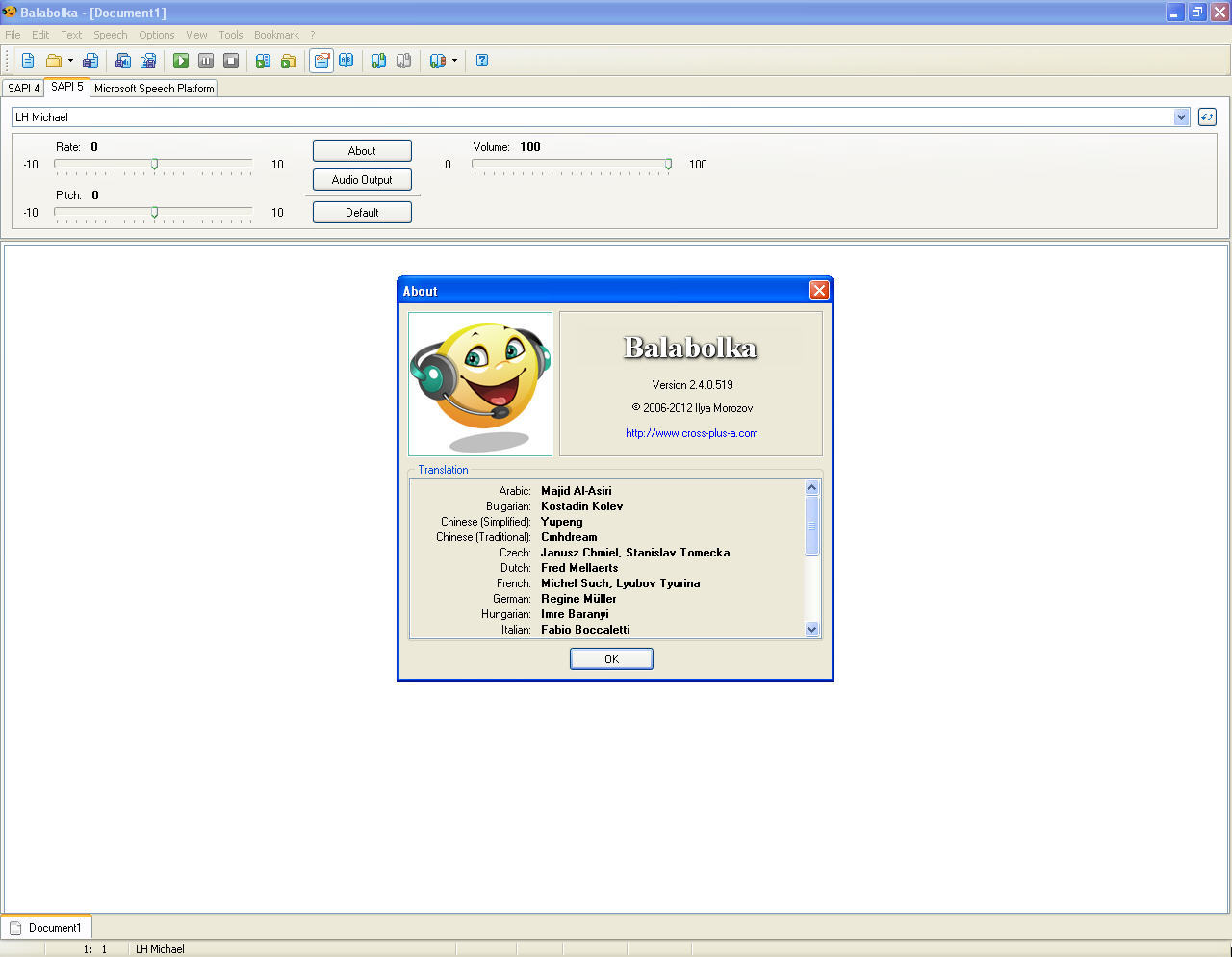

- #Balabolka srt to mp3 for free#
- #Balabolka srt to mp3 how to#
- #Balabolka srt to mp3 pdf#
- #Balabolka srt to mp3 install#
- #Balabolka srt to mp3 update#
Restart the daemon: # sudo systemctl restart rviceīUT, when starting firefox again, nothing happens. #AddModule "espeak" "sd_espeak" "nf"ĪddModule "pico-generic" "sd_generic" "nf" # Each AddModule line loads an output module. Uncomment the module you like and make it default in speech-dispatcher settings: # sudo vim /etc/speech-dispatcher/nf People at arch linux brought me to the right path:
#Balabolka srt to mp3 how to#
How to change the default speech synthesis engine system wide?
#Balabolka srt to mp3 install#
sudo apt install espeak libttspico0 libttspico-data libttspico-utils When searching for a better tts engine to use with the new firefox 49 narrative mode I found pico tts (svox) - my favorite TTS engine.

Writes spoken mp3 data to a file, a file-like object (bytestring) for further audio manipulation, or stdout.Ĭons: CLI-only. GTTS, a Python library and CLI tool to interface with Google Translate's text-to-speech API. Bug reports and any other feedback are welcome! Installation and usage are documented on the project page.

A fallback option using pico2wave automatically provides TTS synthesis in case no Internet connection is found.Īs it stands, the wrapper supports reading from standard input, plain text files and the X selection (highlighted text). The intention is to provide an easy to use interface to text-to-speech output via Google's speech synthesis system.
#Balabolka srt to mp3 update#
Update from project page ( 2016): This project is currently unmaintained and will remain so for the foreseeable future.īecause of the lack of a better alternative I wrote a bash script that interfaces with a perl script by Michal Fapso to provide TTS via Google Translate. Here is a link, and a sample of their audio (don't know how long the link will last).
#Balabolka srt to mp3 pdf#
You can input text, URLs, RSS feeds, as well as documents such as TXT, DOC, and PDF and output to MP3.

The SpeakIt extension uses iSpeech technology and for a price of $20 a year, the site can convert text to MP3 audio files. The voices are not as good as the Chrome SpeakIt voices, but are definitely usable. Within Firefox addons, do a search for TTS and you should find "Click Speak" and also "Text to Voice". you highlight the text you want to be read and either right click and "SpeakIt" or click the SpeakIt icon docked on the Chrome top bar.įirefox users also have two options. There are at least four more male & female voices listed s Chrome extensions if you search the Chrome Web Store using "TTS" as your query. SpeakIt comes with two female voices which both sound very realistic compared to everything else out there. It doesnt work with Chromium for some reason. This only works in the Chrome browser for me on Ubuntu.
#Balabolka srt to mp3 for free#
I believe Ive found the best TTS software for free using a Google Chrome extension called "SpeakIt". You can get other quite good voices from the Nitech repository, but installing them is finicky, and the default paths changed so the file name references in the bundled scheme files may need to be manually edited to work on stock Ubuntu. '(SayText "The temperature is 22 degrees centigrade and there is a slight breeze from the west.")' You can do it from the command line by using -b (or -batch) and putting each command into single quotes: festival -b '(voice_cmu_us_slt_arctic_hts)' \ To make Festival sound natural, here's what to do: sudo apt-get install festivalįestival> (SayText "Don't hate me, I'm just doing my job!") You can easily surpass the pico2wave quality on stock Ubuntu, because one of those voices is available as a ready-made package. However, Festival is a scheme-based speech framework, where a number of researchers have built much better plug-in voices. The default Festival voices are also not that good. Pico and espeak are fun and easy to get to work, but they're not all that good.


 0 kommentar(er)
0 kommentar(er)
